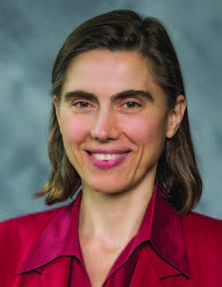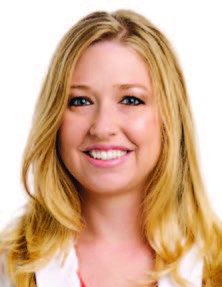 Otolaryngology’s pioneering spirit should shape its future.
Otolaryngology’s pioneering spirit should shape its future.
Explore This Issue
April 2022KONSTANTINA M. STANKOVIC, MD, PHD
Chair, Otolaryngology–Head and Neck Surgery
Stanford University School of Medicine, Stanford, Calif.
I’m a neurotologist and auditory neuroscientist. I trained at Harvard University and MIT, and spent many years practicing at Massachusetts Eye and Ear and Harvard before coming to Stanford as the Bertarelli Foundation Professor and chair of the department of otolaryngology–head and neck surgery. In my new role, working together with my colleagues, we have an opportunity to not only preserve, but also to dramatically improve sensory function, diagnoses, and therapies of diseases that affect the head and neck region.
Otolaryngology has an illustrious history—we were the first to introduce the use of the operating microscope in surgery, which transformed all of surgery. And we introduced cochlear implants, which are the most successful sensory prostheses to date. Additionally, just three years after Edison patented incandescent lights, it was Scottish surgeon John McIntyre who put a miniature bulb in an endoscope so that he could better examine the larynx.
I think what’s truly exciting about the future is staying true to the pioneering spirit of our predecessors. That means we need to identify developments that are relevant for our patients and then boldly step out and help further develop and tailor these scientific and technological trends to improve patient care. Throughout my career, I’ve enjoyed meeting outstanding leaders from all walks of life. There have been patients who’ve shared inspiring stories, trainees who’ve had unbelievable obstacles before them but pushed through to get where they are today, researchers who discovered new therapies for all sorts of diseases, and clinicians who lead cross-disciplinary teams. It’s most interesting, inspiring, and exciting to me to see how we can accomplish so much more together than any one of us can alone.
There’s evidence from cognitive science research that diagnostic reasoning relies not only on the application of scientific knowledge, but also on the process of pattern recognition. This includes reasoning strategies that are based on the memory of previously encountered patients. Going forward, medical education must contain both the imparting of scientific knowledge and the rich exposure to concrete cases during practical training. In terms of research, we need to really advance and incorporate new technologies and ways of thinking into clinical care, translating that into better devices, sensors, and therapies.
 You don’t have to be an extrovert to be a good leader in medicine.
You don’t have to be an extrovert to be a good leader in medicine.